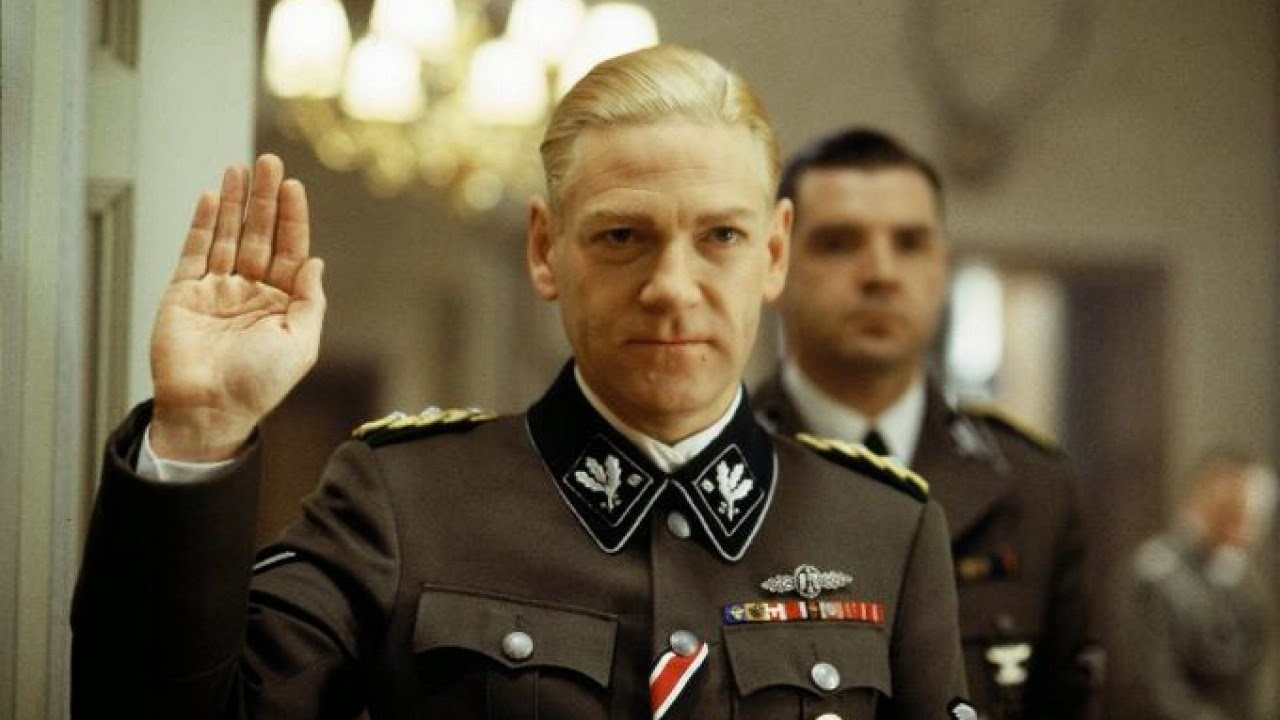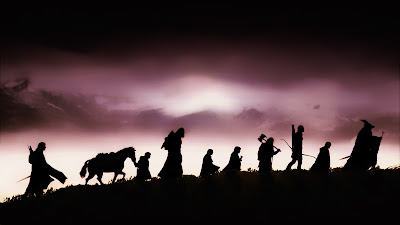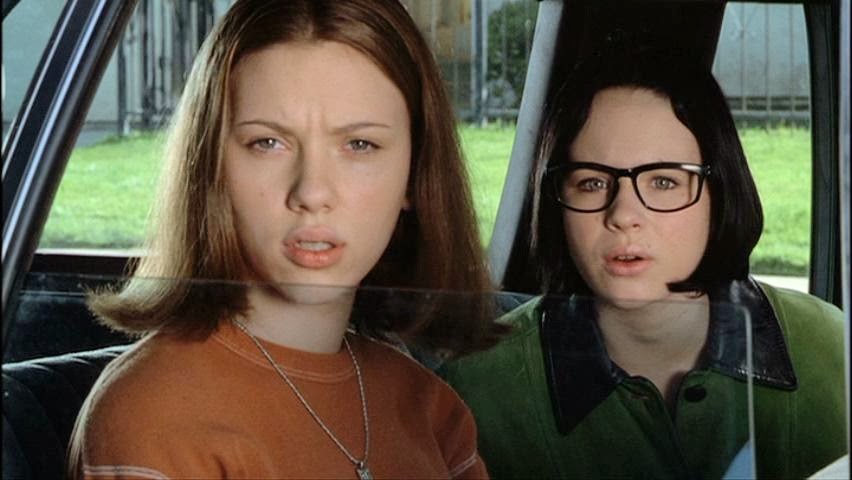What in heaven’s name were these people thinking? What inclination could possibly possess anyone with a reputable mind to surrender to blatant artistic prostitution? Those are but just two of dozens of pragmatic questions that arise during the experience of watching “Town & Country,” a movie so thoroughly miscalculated and awkward that merely thinking about it causes one to feel robbed of brain cells. And what’s essential for us to consider certainly must have been contemplated tenfold from within; after over two years of exhausting rewrites, reshoots, problematic schedules, misplaced egos and disastrous test screenings, someone at the helm must have known they were overseeing a gargantuan failure, or at least detected that they all were destined for a troublesome launch. But how did it even get that far in the first place, we ask? You would think at some point during a story conference, perhaps, someone – anyone – would have been audacious enough to rally against the incompetence of the dialogue or the disconnect in the human behaviors, well before a single frame was shot. Great amounts of revision certainly didn’t help; what remains on screen inspires us to the height shock and awe, and not for any purpose of redeeming value or unintended humor. Here is such a colossally bad film that there is little wonder in how it failed so catastrophically in the public eye.
Showing posts with label 2001. Show all posts
Showing posts with label 2001. Show all posts
Sunday, May 1, 2016
Monday, April 11, 2016
Moulin Rouge! / **** (2001)
Baz Luhrmann’s “Moulin Rouge!” is one of the great movie spectacles of this generation, an undertaking of vast scope made all the more fascinating by how it transforms commonplace undercurrents into rich sensations for every frame it possesses the screen. That is not an easy feats to achieve for an endeavor that uses fairly common ideas – of which there is an ample supply – but no one involved is content to regard what they participate in from eyes of relative acceptance, either. Artists, philosophers, lovers and ambitious thinkers all have a place in the decadent halls of the famed Parisian nightclub, but to watch them engage in the rituals of excess is to suspect similar minds standing behind the camera lens, orchestrating the foreground like conductors of an exciting visual symphony. I have visited those joyous corridors countless times over the years, and with each new outing I find myself cheerfully seduced by its values: the wonder of the images, seemingly created by magicians, and the richness in conviction of the story, which recounts the affair of two young lovers destined for tragedy.
Tuesday, August 25, 2015
Hedwig and the Angry Inch / **** (2001)
Perhaps it is just a cruel irony that drag queens and transsexuals, often reduced to caricatures and sneered at by mainstream society, adopt makeup patterns that allow them to appear so lively. Under the elaborate image of sharp eyebrows, heavy eye-liner and broad smears of lipstick and rouge, the face often hides melancholy; they are usually carrying the sorts of secrets that can only be escaped by acting out, usually in theatrical impulses or with biting sarcasm. That is not necessarily the absolute truth when it comes to their presence in queer culture, but it is surely the most prominent running theme of John Cameron Mitchell’s “Hedwig and the Angry Inch.” To contemplate that prospect is to open a gate in which we can begin to understand the fractured mental state of the hero, a man who has endured harsh pain and betrayal at the hands of treasured loved ones, and yet wanders into his nightly performances with frontal ambivalence; he is going to sing his heart out, tell stories and always do so with flamboyant gusto. Behind the scenes, unfortunately, very little of that carries over, and in an existence that is made miniscule by negative public perceptions, a thorough portrait emerges that is sad, haunting, dynamic and even rousing. We are not just experiencing the life of a person here; we are embodying his agony like friends in powerless observation.
Saturday, April 4, 2015
Conspiracy / *** (2001)
A mere 90 minutes is all it took for a room full of Nazi officials to reach a decision that would obliterate an entire race of people, and even less of that time was spent contemplating the moral repercussions of their dubious impulse. Those are just two of the undisputable facts of the Wannsee Conference of January 20, 1942, a moment so vast in its evil ramifications that nearly all those involved did everything possible to wipe away knowledge of its existence. Unfortunately for them, one written account of that notorious day did in fact survive, and after the end of World War II it fell into the hands of those who would see its disturbing secrets shared with the world. Without it, the architects of the Nazi’s “Final Solution” might have even eluded the crosshairs of authority; several who were present during those minutes were not well-known or high ranking in the Reich to begin with, and their presence at the conference was, in some cases, the only contributions they would make on the history radar. But what does it matter now, especially considering how prevalent the images of millions of slaughtered civilians are in our scarred vision? The root of rejecting evil begins with understanding it, which is almost harder to do when you get right down to the source.
Friday, January 25, 2002
Mulholland Drive / **** (2001)
The psyche of director David Lynch is one that has puzzled many a moviegoer ever since his first big feature, "Blue Velvet," writhed its way onto movie screens more than 15 years ago. Exercising an unorthodox demeanor in his approach to the cinema, Lynch is a rambling sensationalist behind the camera, suspending logic and reason for ambiguity and indecisiveness as sanctioned plot devices. The outcomes of his efforts aren't always plausible (more often than not, this perplexing angle appears to be rather self-absorbed on his part), but to a degree they fascinate and absorb us, sometimes so immensely that we feel like we've unfairly been coaxed into a position that we would ordinarily not want to be part of.
Friday, January 18, 2002
The Best and Worst Movies of 2001
January 18, 2002
THE BEST MOVIES OF 2001:
1 - The Lord of the Rings: The Fellowship of the Ring
Few times in the recent past has a movie so swiftly shattered the highest expectations of our moviegoers and totally restructured the way we view the cinema. Peter Jackson's first of three installments of J.R.R. Tolkien's trilogy of "The Lord of The Rings" is exactly that kind of movie, one that not only tells its story thoroughly and wisely, but also takes us to places more elaborate, lush and vivid than those of the most intimate corners of our imaginations.
THE BEST MOVIES OF 2001:
1 - The Lord of the Rings: The Fellowship of the Ring
Few times in the recent past has a movie so swiftly shattered the highest expectations of our moviegoers and totally restructured the way we view the cinema. Peter Jackson's first of three installments of J.R.R. Tolkien's trilogy of "The Lord of The Rings" is exactly that kind of movie, one that not only tells its story thoroughly and wisely, but also takes us to places more elaborate, lush and vivid than those of the most intimate corners of our imaginations.
Monday, December 24, 2001
The Lord of the RIngs: The Fellowship of the Ring / **** (2001)
Listening to the opening narration delivered in "The Lord of the Rings: The Fellowship of the Ring," I was instantly swept back into the archaic but opulent realm of J.R.R. Tolkien's Middle-earth, where hobbits, elves, dwarfs, wizards and mortal men became united in their quests to save the lands they loved from almost certain destruction. It was a place I had not visited for quite some time, and yet one where I could still clearly visualize the lush landscapes that hedged the ambitious journeys of the story's endlessly colorful characters. That's because Tolkien's work in his "Lord of the Rings" trilogy is likely the most vivid and enduring material ever created in fantasy literature, work that transcends all boundaries of time and storytelling and flourishes off the imaginations of its readers. Those of us who read the books are instantly enraptured, and few, if any, admirers are able to forget the experience.
Monster's Ball / ***1/2 (2001)
The title of "Monster's Ball" pertains to the last preparations made for a prison inmate as he takes his last journey down death row. The final party, as it is commonly referred to in the movie, consists of the last meal, final farewells, last-minute phone calls, words of wisdom and the like, all arranged and carried out by the prison guards in a concise but almost celebratory manner. Corrections officer Hank Grotowski (Billy Bob Thornton), who oversees the Monster's Ball of an inmate towards the beginning of the picture, believes every element leading towards the man's impending death should be perfectly executed; according to him, it's the only appropriate kind of sendoff. But when his own officer son, Sonny (Heath Ledger), becomes nauseous during the final walk and collapses onto the floor, Hank is totally outraged and becomes violent, so much so that eventually, other officers have to intervene and hold the tempered father back. Pulling away from the final walk like that, we gather, disrupted Lawrence's deserving sendoff.
Waking Life / ** (2001)
Sitting through "Waking Life" is like being trapped in a painting filled with philosophy students; every visual of the movie bleeds of elaborate abstractness, but you rapidly lose interest because those who stand in front of them discuss life, destiny, dreaming and imagination to a degree that feels repetitive and endless. Halfway through the film, there is a moment when a character looks over to another and asks him "what are you writing?" His reply: "A novel. But there's no story; it's just people, gestures, moments, bits of rapture fleeting emotions. In short, the greatest story ever told." This is the basic thread of logic the movie follows, because other than characters passing each other and opening themselves up to dialogue exchanges, there is no plot or element of basic storytelling contained in the picture. Needless to say, it eventually leads to ultimate boredom. And even then, that idea itself might have at least worked had the characters found more interesting things to talk about.
A Beautiful Mind / ***1/2 (2001)
Modest, reticent, offbeat and underestimated math genius John Nash is told at the start of "A Beautiful Mind" by an instructor at Princeton that he, or any one of his fellow classmates, could very well be the next Isaac Newton or Albert Einstein. Immediately we see the groundwork layed for a standard feel-good character study, saturated with promises of cheep and shameless sentiment and dripping with the obvious intent on manipulating audiences right down to the last provoked tear. Our anticipation, which has been built drastically in the recent weeks thanks to an ominous yet intriguing promotional campaign, suddenly dies down, and as we wait in the dark theater for the picture to throw out its first emotional outburst, we ache with displeasure.
The Endurance / **** (2001)
"There is nothing that can crush a man as to see his dreams crumble to the dust."
- Dialogue from "The Endurance"
A reference is made early on in "The Endurance" in which the narrator (Liam Neeson) refers to the voyage depicted in the film as the "last great journey in the heroic age of discovery." Immediately the mind is flooded with memories of high school history classes, when the majority of us were taught about the perilous but exciting journeys of explorers like Hudson and de Leon, who sought after, and eventually found, pieces of land that few human eyes had seen before. Much less extensive, however, is our knowledge in regard to the 1914 expedition of famed explorer Ernest Shackleton, who, only months before setting sail on his ill-fated adventure, placed an ad in the local British newspaper asking for volunteers to undertake the dangerous, potentially life-threatening task of crossing the entire Antarctic continent on foot—something that had yet to be done. How could most of us miss this piece of history? It's not as if the story is lacking in detail; in fact, "The Endurance," a fascinating new documentary, provides the viewers with enough specifics to almost make them scratch their heads in amazement.
- Dialogue from "The Endurance"
A reference is made early on in "The Endurance" in which the narrator (Liam Neeson) refers to the voyage depicted in the film as the "last great journey in the heroic age of discovery." Immediately the mind is flooded with memories of high school history classes, when the majority of us were taught about the perilous but exciting journeys of explorers like Hudson and de Leon, who sought after, and eventually found, pieces of land that few human eyes had seen before. Much less extensive, however, is our knowledge in regard to the 1914 expedition of famed explorer Ernest Shackleton, who, only months before setting sail on his ill-fated adventure, placed an ad in the local British newspaper asking for volunteers to undertake the dangerous, potentially life-threatening task of crossing the entire Antarctic continent on foot—something that had yet to be done. How could most of us miss this piece of history? It's not as if the story is lacking in detail; in fact, "The Endurance," a fascinating new documentary, provides the viewers with enough specifics to almost make them scratch their heads in amazement.
Ghost World / *** (2001)
The months preceding and following a high school graduation are the most crucial for teenagers because they are when all the important decisions regarding the future have to be made. A huge weight feels like it has been lifted once the diplomas are in their hands, but the pressures of real life persist, and only when these young adults have set clear goals for themselves and their futures does the outlook appear to be less treacherous to navigate. Those who put off such imperative decisions only make the road ahead steeper and bumpier.
Gosford Park / **** (2001)
Robert Altman's "Gosford Park" is one of those movies that charges at us like a stampede of Zebras, startling and unexpected, yet mesmerizing and wondrous all at the same time. Grasping at its viewers through breathtaking visuals, elaborate characters studies and jaw-dropping plot devices, the picture strikes with such brisk force that few have enough time to express a reaction. And that's somewhat of a surprise given the nature of the premise, which takes on the classic "whodunit" approach in a relatively familiar way: by setting the scene at a reclusive, towering mansion built deep into the countryside, where countless high-profile characters are invited into its walls for fun times, free food and cushy living.
Friday, November 16, 2001
Monsters, Inc. / *** (2001)
On the other side of closet doors, in a universe right next door to the ones explored in "Toy Story" and "A Bug's Life" (in which toys and insects live social and productive lives), lies the land of Monstropolis, a colorful but eccentric cityscape that houses beings not unlike what many of us imagined were living in closets or under beds when we were young. What has never been said of monsters, however, prior to Pixar's "Monsters, Inc." is that human children scare them just as much as they scare us, and though kids may pull blankets over their heads for fear of a furry large beast emerging from a doorway, those same large creatures live with the idea that all children are toxic and can hurt them right back.
Friday, October 12, 2001
Bandits / ***1/2 (2001)
Crime capers are some of the most perplexing types of movies we will ever come in contact with, not simply because they so closely peer into the lives of seemingly untouchable outlaws, but because they tend to treat the situation with a dynamic sense of fanaticism. As crooks wave around weapons and shout out orders to innocent bystanders, suddenly they become celebrities, revered by thousands of onlookers who view their audacious actions not as crimes, but as interventions against government. Such a case is the essential point behind "Bandits," the newest movie under director Barry Levinson's belt, which sees two escaped convicts almost effortlessly rob bank after bank along the US west coast, and develop a devoted fan base as a result.
Saturday, September 29, 2001
Blood: The Last Vampire / *** (2001)
The worst possible thing we can do as moviegoers is expect too much from a film that promises so little, but that’s exactly the case with “Blood: The Last Vampire,” the latest in a string of Japanese Anime releases from Manga Video. It’s not that we want the movie to be a better one; just a longer, more productive one. It offers one of the most well-mounted buildups seen in animation of recent memory, taking us through a fascinating story in which the plot twists are so unforeseen that your eyes sparkle with delight after they are carried out. But in the wake of an astounding battle scene that literally sweeps the breath out of its viewers, the end credits begin to roll, and we’re left wondering, “that’s it? Where’s the rest?” A premise is set up, the characters are introduced, the plot thickens, there’s a magnificent battle of forces, and then... nothing. It’s as if the filmmakers created an open wound and felt that audiences didn’t need to see it heal.
Bubble Boy / zero stars (2001)
Comedy has taught us that one man’s laugh is another man’s disgust, and that thought needs no further explanation beyond the background story surrounding “Bubble Boy,” a movie about a 16-year-old teen with immune deficiency who seeks romance, but is unable to live outside of a plastic bubble for fear of coming in contact with germs which, ultimately, could lead to fatality. Even before its release, the movie was challenged by the mother of a now-deceased son that suffered from the same illness, who feared that such an approach to comedy was unsuitable and defamed the memory of her child. An understandable response? Perhaps. However, having not seen the movie, Carol Ann Demaret, the mother of the original “bubble boy,” has jumped to a conclusion simply on the basis of her personal experience, not to mention the fact that her uproar has actually given the movie more publicity than it ever needed.
The Fast and the Furious / *** (2001)
“The Fast And The Furious” can easily be seen as companion piece to last year’s summer hit “Gone In Sixty Seconds,” and understandably so. Both movies deal with man’s love for automobiles, and not just any automobiles, but fast ones that screech when the brakes are used and survive most of the damage dealt to them. A list of similarities could easily go on in a discussion about both films, but one substantial difference here is that the earlier endeavor was weakened by its dreary cast, whereas this picture, at least, is blessed to have Vin Diesel among its credits. Diesel has easily proven he can turn any role into something meaningful and realistic even when seemingly impossible, and though his character in this picture is hardly someone you would walk with in downtown L.A. past midnight, he’s very much observant, and by the time the plot sets itself up, we actually care what happens to him.
Glitter / * (2001)
Ever notice how famous music artists tend to have the most difficult time paving their ways into a successful movie career? The often disastrous transition that everyone is familiar with—from the examples set by Madonna, Whitney Houston and even the late Alliyah—is repeated for a zillionth time in Vondie Curtis-Hall’s “Glitter,” a film that gives pop songstress Mariah Carey 105 long minutes to show us if she is capable of holding the attention of an audience past her very extensive vocal abilities. Not surprisingly, her efforts have led to one of the most pointless and lackluster efforts to hit the big screen this year.
Hardball / *1/2 (2001)
“Hardball” is exactly the kind of idiotic, boring and sluggish endeavor any number of us would come to expect from director Brian Robbins, the man who single-handedly concocted the moron comedy “Ready to Rumble,” the insulting “Varsity Blues” and the pointless dreck known as “Good Burger” all in less than five years. Perhaps we should give him credit for at least trying though; this is probably a better movie than all three of those put together. And yet you can’t help but wonder, with or without answers, if his mind was simply lost in orbit when he even considered taking on this obvious and predictable project, especially since we’ve already seen it played out a good two or three dozen times in the last twenty years alone. At this point, it’s safe to say that this genre has gone into too many extra innings.
Subscribe to:
Posts (Atom)




















